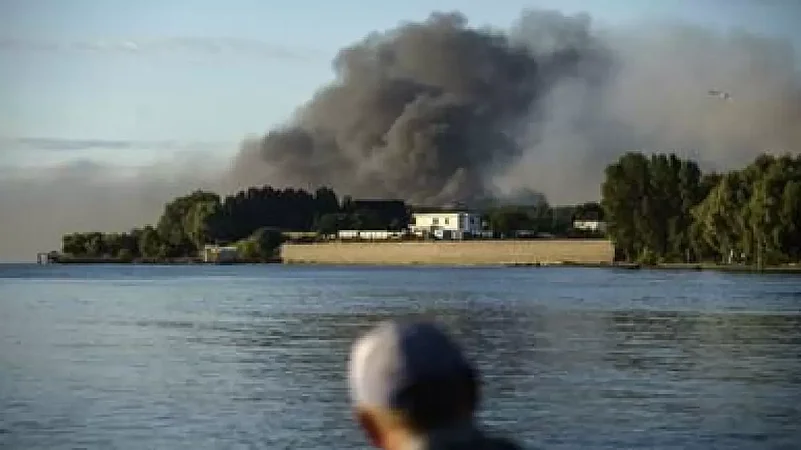The UN General Assembly started debating on Monday whether to demand that Russia reverse course on annexing four regions of Ukraine — a discussion that came as Moscow's most extensive missile strikes in months alarmed much of the international community anew.
The assembly's special session, planned before Monday's barrage, was intended to respond to Russia's purported absorption last month of Ukraine's Donetsk, Luhansk, Kherson and Zaporizhzhia regions.
The move followed Kremlin-orchestrated “referendums” that the Ukrainian government and the West have dismissed as illegitimate.
But countries took the occasion to speak out on the Monday morning rush-hour attacks that hit at least 14 Ukrainian regions, including the capital of Kyiv, and killed at least 14 people.
Russia said it targeted military and energy facilities. But some of the missiles smashed into civilian areas.
Ukrainian Ambassador Sergey Kyslytsya told the assembly that some of his own close relatives were imperiled and unable to take cover in a bomb shelter.
“By launching missile attacks on civilians sleeping in their homes or rushing toward children going to schools, Russia has proven once again that it is a terrorist state that must be deterred in the strongest possible ways,” he said as the debate began.
Russia has said it was retaliating for what it called a Ukrainian “terrorist” attack on Saturday on an important bridge, and Ambassador Vassily Nebenzia told the assembly that Moscow had warned that there wouldn't be impunity for such an attack.
UN Secretary-General António Guterres was “deeply shocked” by the Russian attacks and spoke on Monday with Ukrainian President Volodymyr Zelenskyy, said UN spokesperson Stéphane Dujarric.
Hours later, the UN assembly gathered to consider a proposed resolution that would condemn the “referendums” and claimed annexations as illegal.
The European Union-led measure also would demand that Moscow “immediately and unconditionally" scrap its purported annexations, call on all countries not to recognise them and insist upon the immediate, complete and unconditional withdrawal of Russian forces from all of Ukraine's internationally recognised territory.
Russia's ambassador reiterated his country's claim that the votes were valid and that Moscow is endeavoring to “protect” people in the regions against what the Kremlin views as a hostile Ukrainian government.
Nebenzia decried the debate as a one-sided exercise in pushing an anti-Russian narrative.
“Such cynicism, confrontation and dangerous polarization as today we have never seen in the history of the UN,” he said.
A vote is expected later in the week. Russia wanted secret balloting, an unusual move that the assembly rejected, 107-13, with 39 abstentions. Russian bids to reconsider the secret-ballot idea were voted down.
Russia recently vetoed a similar but legally binding UN Security Council resolution that would have condemned the supposed annexations. Under a decision made earlier this year, Security Council vetoes must now be explained in the General Assembly.
The assembly doesn't allow vetoes and its resolutions aren't legally binding. During the war, the assembly has voted to demand that Russia withdraw, to blame Moscow for the humanitarian crisis in Ukraine and to suspend Russia from the UN Human Rights Council.
Meanwhile, there has been a stalemate in the Security Council, where Russia is among five countries with veto power.





















